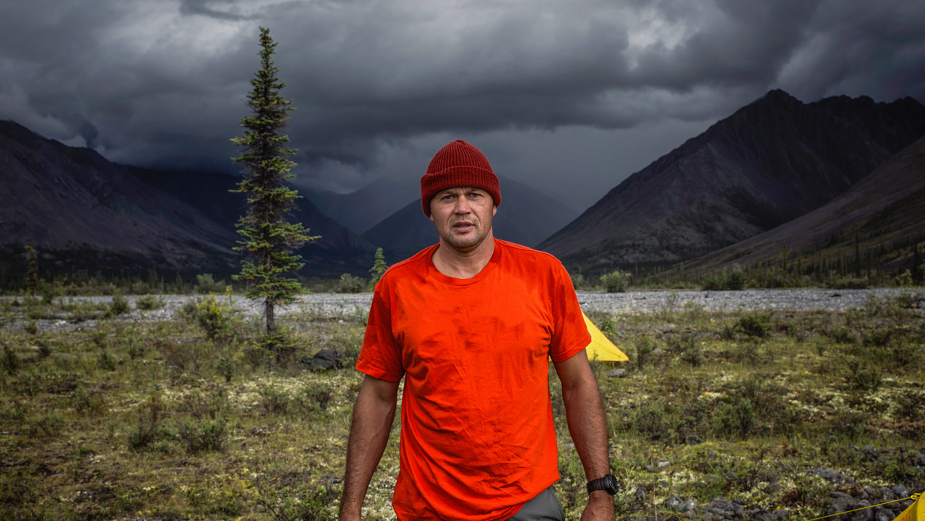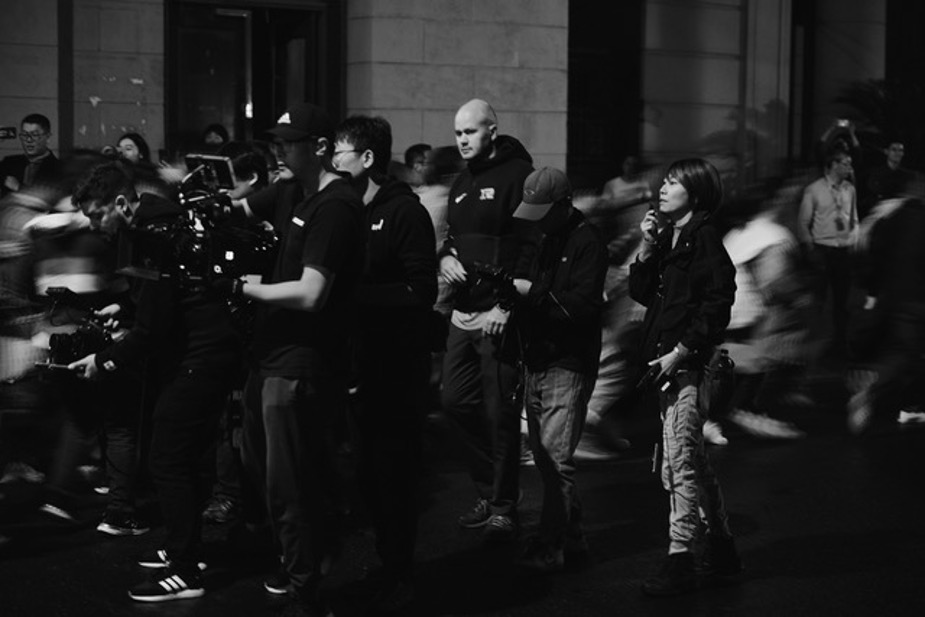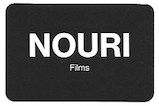
The Directors: Jason van Bruggen

Jason van Bruggen is a film director, photographer, adventurer and activist. Known for a visually arresting treatment of landscapes, and the ability to elicit emotion and range from actors and real people, his work is full of beauty, found light, substance and a clear appreciation for the natural world. His immersive storytelling expresses a profound interest in culture and geography and an ambition to share the authentic and truthful stories of everyday heroes the world over.
His long and diverse list of clients includes Destination Canada, Patagonia, NASA, KLM, BC Hydro, Canada Goose, Arc’teryx, Parks Canada, AllState, Ontario Medical Association and Aveda. His work as a visual storyteller has been profiled by Outside Magazine, National Geographic, Shoots, Flyfish Journal, Communication Arts, Applied Arts, Photo District News and his photographs have been published in New York Times, the Globe and Mail, Architectural Digest and many other publications. Jason has been a featured artist at the Scotiabank CONTACT Photo Festival and his photographic work has been on display at some of Canada’s leading cultural institutions. Jason has a Masters Degree in History from Queen's University and is a Fellow International of the Explorers Club and a Fellow of the Royal Canadian Geographic Society. He has travelled and worked in over 100 countries, including some of the most remote and austere locations on the planet.
- Name: Jason van Bruggen
- Location: Canada
- Repped by/in: Nouri Films (Spain and Portugal) / Community Films (US) / Antonella Perillo Agency (Europe/ME), Animals (Canada)
- Awards: SHOOTS new Director Award, AICP, Photo Annual, Communication Arts, Applied Arts, ADCC awards
Q> What elements of a script sets one apart from the other and what sort of scripts get you excited to shoot them?
Jason> I get excited about work that I can see myself doing and adding real value to. I love taking a great script idea and imagining ways to make it better, to make it really stand out. Having those words on the page conjure up strong images in my mind is what excites me to write a treatment. I love great stories set in great locations featuring great believable characters. I am very interested in telling stories full of natural beauty that feature everyday heroes the world over. I also love imagining how to tease out deep narrative quality and emotion when working with real people.
Q> How do you approach creating a treatment for a spot?
Jason> Differently in each case. I’m a visual person with an equal interest in photography, who is known for my visual work. I rely on beautiful imagery and try to work in consistently powerful images. As I block things out in this way, it helps evolve my initial thinking about things like cast, camera technique and art direction.
Q> If the script is for a brand that you're not familiar with/ don’t have a big affinity with or a market you're new to, how important is it for you to do research and understand that strategic and contextual side of the ad? If it’s important to you, how do you do it?
Jason> I do my homework for sure. If I’m going to consider putting my name on something, I want to understand both the integrity of the brand and the nuance of their story. How they are speaking to consumers will be a consideration for our film. In addition to doing my own research, asking a lot of questions of the creatives is a really important part of the briefing process for me. In most cases, the people on the phone are smart and they’ll have some really important insights that have informed their script and will inform everything we do together.
Q> For you, what is the most important working relationship for a director to have with another person in making an ad? And why?
Jason> It really depends on the job. In all cases, it’s important to have a great relationship with my clients, the creatives at the agency. Because I often do jobs that have significant logistical challenges – remote locations, tough weather etc. I need a good team. I’ve produced jobs in the past, I shoot some of my own work, so I have a lot of opinions that a producer or DOP will typically bring to the table, I really value collaboration and intelligence from both those roles.
Q> What type of work are you most passionate about - is there a particular genre or subject matter or style you are most drawn to?
Jason> I love shooting beautiful work, so big visual work. But also work that has an emotional core to it, and speaks to the cultural truths of our time. Beauty that makes us feel something.
Q> What misconception about you or your work do you most often encounter and why is it wrong?
Jason> It’s hard for me to say. I think people look at my work and see big visuals, which is certainly part of what I do. I suspect people might not always see the range or emotional connectivity of my work, which I’m proud of.

Q> Have you ever worked with a cost consultant and if so how have your experiences been?
Jason> Not directly.
Q> What’s the craziest problem you’ve come across in the course of a production – and how did you solve it?
Jason> I don’t know where to start. I’ve shot a bunch of jobs above the Arctic circle, in the desert or in remote African locations, so everything from being trapped by a storm and not being able to get in and out to complete equipment failure to significant issues with work permits and carnets. At this point, I’ve been to well over 100 countries, war zones, jungles, you name it, so I’ve become a pretty adept problem solver. When these issues arise, I just slow down and calmly work through solutions with my team. I also am ready to pivot and embrace changes to equipment, personnel or locations which allow us to complete the job in a different way than we planned. I don’t panic.
Q> How do you strike the balance between being open/collaborative with the agency and brand client while also protecting the idea?
Jason> By building initial trust and having open conversations. Sometimes things get a little tense and that’s part of the job, but we work through it. At the end of the day, we all want a good film. I try and encourage everyone to remain focussed on that objective and explain my decisions in that light.
Q> What are your thoughts on opening up the production world to a more diverse pool of talent? Are you open to mentoring and apprenticeships on set?
Jason> We’re overdue. This is really not a diverse industry, especially in North America. I’m open to any form of mentoring or apprenticeship. I’ve got a lot of time for people trying to break into the production world or learn more. I’m mentoring a young Black Canadian filmmaker, although it’s been a strange year with inconsistent work, and especially with the mandate to keep crew numbers on set low. I look forward to being able to commit to this more fully at the end of Covid. I feel the on-set experience is really key.
Q> How do you feel the pandemic is going to influence the way you work into the longer term? Have you picked up new habits that you feel will stick around for a long time?
Jason> I’ve always been pretty adaptable and plan to remain that way. I will say the pandemic has made me appreciate how important it is to be able to communicate and understand each other on set. That includes facial expressions, speaking to each other without masks, shaking hands, making connections with both crew and talent. I’m looking forward to that hopefully being part of the experience again.
Q> Your work is now presented in so many different formats - to what extent do you keep each in mind while you're working (and, equally, to what degree is it possible to do so)?
Jason> I keep this in mind to the extent that I responsibly can without sacrificing the quality of the main deliverable. It’s entirely possible to deliver against multiple mediums and formats on a job, as long as communication is clear from the outset, and we allocate sufficient time and resources to all. I always ask what the main priorities are on a job and try and align our efforts accordingly. I think everyone from the client to the production people are trying to figure out how to make it all work together, so it’s important to be patient and flexible, as well as protective of the main objective.
Q> What’s your relationship with new technology and, if at all, how do you incorporate future-facing tech into your work?
Jason> I love learning about and utilizing new tools. I’m open to anything that serves the story. If it makes it better, let’s consider it and find a way to integrate it. That said, I think there are times when people want to try a piece of technology or a technique because they think it’s neat or because it was sold as part of a creative package to a client. My questions are always ‘why?’ and ‘how does this make our story or ad better?’.













